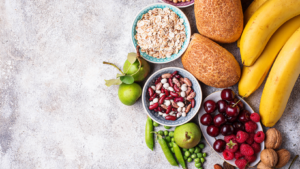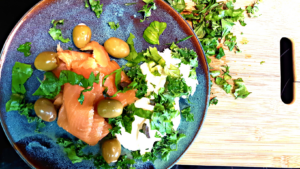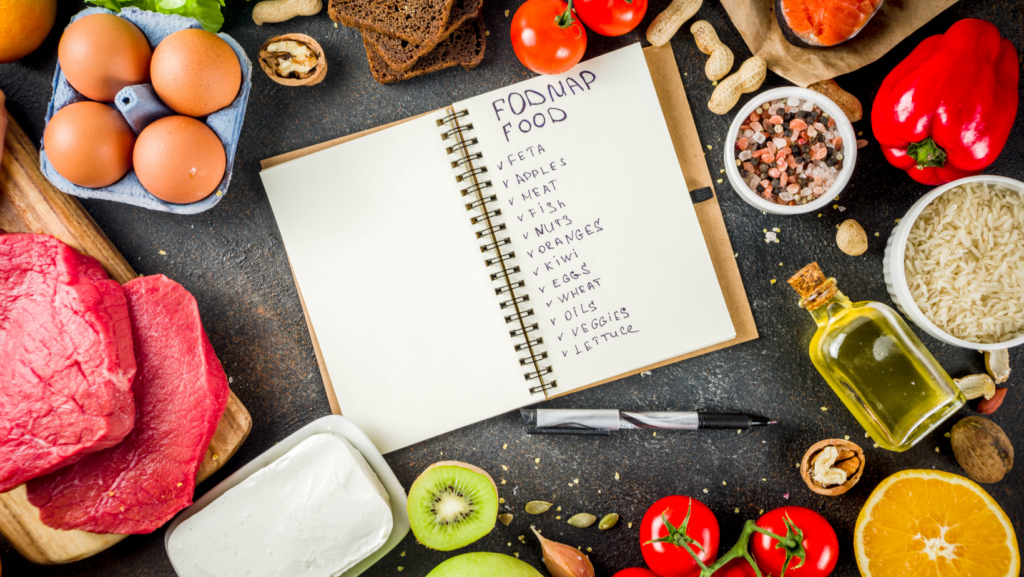A singer’s voice is their most prized possession. It’s the tool that sets them apart, creates awe-inspiring melodies, and connects them with audiences worldwide. But what fuels this powerful instrument? The answer lies in a well-balanced, nutritious diet.
This article uncovers the secret recipe for a healthy voice, delving into the dietary habits of successful singers. It’s not just about hitting the high notes or perfecting the vibrato, it’s also about what you eat and drink. Stay tuned as we explore the connection between diet and vocal health, offering tips that’ll help you maintain your vocal chords in top shape.
So, whether you’re a budding vocalist or a seasoned professional, this guide will serve as your roadmap to vocal longevity. After all, a singer’s diet plays a pivotal role in their performance and overall vocal health.
Singers Diet for a Healthy Voice
 A singer’s voice, often deemed as their unrivaled asset, finds its health and vitality intertwined with their dietary choices. A careful diet regime shapes vocal fitness, thereby directly impacting the longevity of a singer’s career. An essential facet of a singer’s life illustrates the diet-vocal health nexus. Every bite a singer takes contributes to their vocal pliability. Dehydration, for example, triggered by foods high in sodium or caffeinated beverages, spells disaster for a voice, reducing its tonal quality. Conversely, water-rich food, such as cucumbers and watermelons, soothes vocal cords, offering a resonant note clarity and ease of phonation.
A singer’s voice, often deemed as their unrivaled asset, finds its health and vitality intertwined with their dietary choices. A careful diet regime shapes vocal fitness, thereby directly impacting the longevity of a singer’s career. An essential facet of a singer’s life illustrates the diet-vocal health nexus. Every bite a singer takes contributes to their vocal pliability. Dehydration, for example, triggered by foods high in sodium or caffeinated beverages, spells disaster for a voice, reducing its tonal quality. Conversely, water-rich food, such as cucumbers and watermelons, soothes vocal cords, offering a resonant note clarity and ease of phonation.
Specific foods act as vocal cord lubricants, while others can cause strain or inflammation. Such as dairy products, encourage mucous production that obstructs vocal cord movement, hinders vocal projection. Proper nutrition thus becomes the unsung hero in a singer’s vocal training, influencing the strength, range, and tone of their voice.
Deciphering dietary impact, therefore, streamlines a singer’s pathway to optimal vocal refinement. It’s essential for a singer to understand what to consume and what to avoid, following a custom diet plan that favors their unique vocal mechanics. The dietary choices and patterns of singers, when carefully balanced, provide a supportive foundation for a robust and enduring voice.
Essential Nutrients for a Singers Diet
 Understanding the nutrients vital for a singer’s vocal health generates an upper hand in maintaining an excellent voice quality. This section highlights the importance of hydration, along with the key vitamins and minerals for boosting vocal health. Hydration, indispensable for a singer’s vocal health, ensures the vocal cords remain flexible, reducing the chances of injury. Drinking a minimum of eight glasses of water daily keeps the vocal cords moist, allowing for smooth voice production. It’s also worth mentioning that singers should steer clear of caffeinated beverages, as these may cause dehydration, compromising vocal health.
Understanding the nutrients vital for a singer’s vocal health generates an upper hand in maintaining an excellent voice quality. This section highlights the importance of hydration, along with the key vitamins and minerals for boosting vocal health. Hydration, indispensable for a singer’s vocal health, ensures the vocal cords remain flexible, reducing the chances of injury. Drinking a minimum of eight glasses of water daily keeps the vocal cords moist, allowing for smooth voice production. It’s also worth mentioning that singers should steer clear of caffeinated beverages, as these may cause dehydration, compromising vocal health.
The Worst Foods for Singers
 A singer’s diet can heavily impact vocal performance. Recognizing the detrimental effects of particular foods and drinks forms a crucial aspect of vocal health management.
A singer’s diet can heavily impact vocal performance. Recognizing the detrimental effects of particular foods and drinks forms a crucial aspect of vocal health management.
Hydration serves as the key to maintaining vocal cord resilience, yet certain foods and drinks act as dehydrators. Alcohol, caffeine, and salty foods mark the primary culprits, reducing the body’s water composition. A study conducted by the University of Pennsylvania attests that singers consuming these dehydrating substances experience heavier vocal fold mass, leading to potential voice damage.
Constructing a Balanced Singers Diet
Creating a balanced diet for singers revolves around strategic meal planning and nutrient-rich food selection. It demands precise consideration of food intake and the ability to incorporate essential nutrients incessantly.
Incorporating the Essential Nutrients into Your Meals
Singers stand to gain from a diverse range of foods that offer vital nutrients. Proteins, for instance, prove fundamental in repairing and building tissues—including the vocal cords—making choices like fish, lean meats, and eggs a requisite part of the diet.
Fruit and vegetable inclusion, rich in vitamins A, C, and E, promotes overall health with specific benefits for a robust immunity—the defense against vocal-threatening conditions. Musicians frequently opt for broccoli, berries, and sweet potatoes, to name a few.

